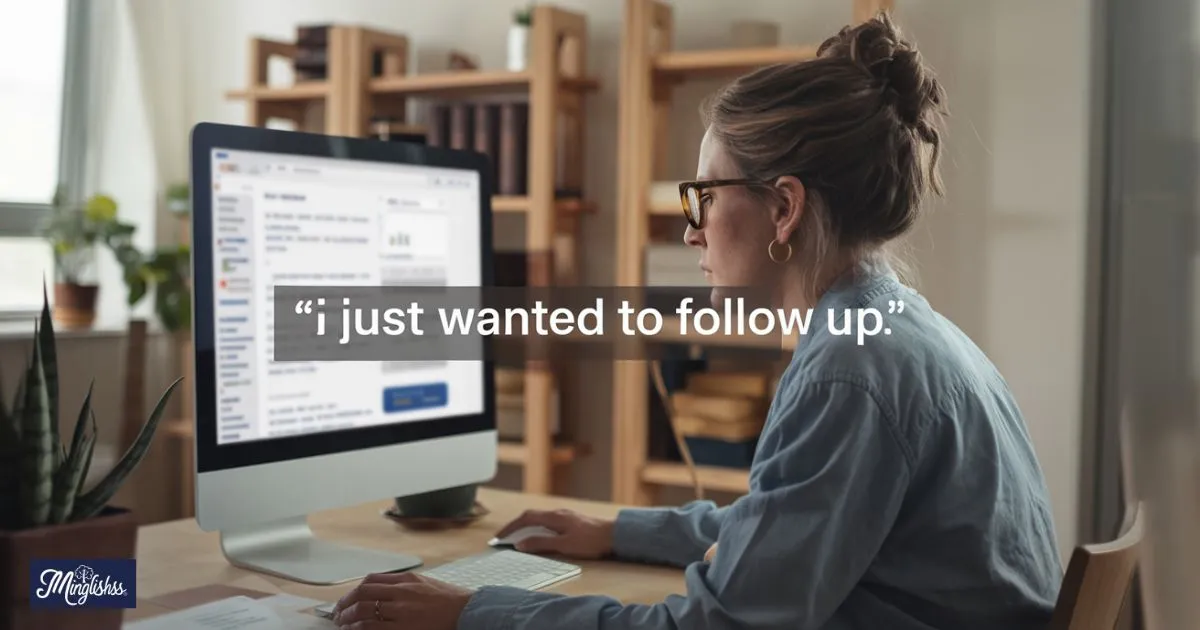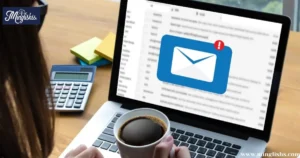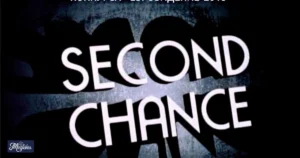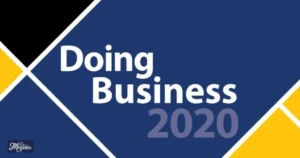“Keep your communication fresh with these engaging alternatives!”
In today’s fast-paced world, effective communication is essential for building relationships and achieving goals. Whether you’re reaching out to a colleague, client, or friend, it’s important to convey your message clearly and politely.
The phrase “I just wanted to follow up” is commonly used to check in on a previous conversation or request, but it can sometimes sound repetitive or formal. Luckily, there are many alternative expressions that can make your communication more engaging and tailored to the situation.
When you choose to vary your language, it not only keeps the conversation interesting but also shows that you value the other person’s time and attention. This blog explores different ways to express the sentiment of following up, providing you with fresh alternatives that suit various contexts and relationships.
If you often find yourself using the same phrases in your communications, it’s time to expand your vocabulary. Explore the alternatives listed below and consider how you can incorporate them into your emails, messages, or face-to-face conversations. By diversifying your language, you’ll enhance your communication skills and foster stronger connections with others.
In this guide, you’ll find 35 different phrases to replace “I just wanted to follow up.” Each phrase is accompanied by a scenario illustrating its use and an additional tip for effective communication. You’ll also discover the pros and cons of using varied expressions and answers to frequently asked questions related to this topic.
1. “I’m Checking In”
Scenario
You’ve sent an email to a colleague regarding a project update and want to see how they’re progressing.
Subject Explanation
This phrase conveys a friendly tone and shows your interest in their progress.
Additional Tip
Consider adding a specific question about the project to encourage a more detailed response.
2. “I’m Following Up on Our Last Conversation”
Scenario
You had a meeting last week and want to ensure the topics discussed are still being addressed.
Subject Explanation
This expression reinforces your commitment to the discussion and indicates that you value the input shared.
Additional Tip
You can summarize the key points from the last conversation to remind them of the context.
3. “Just Touching Base”
Scenario
You’re reaching out to a coworker about a task that needs attention.
Subject Explanation
This informal phrase keeps the tone light while indicating that you are interested in their progress.
Additional Tip
Suggest a quick chat if they need assistance, showing your willingness to collaborate.
4. “I Wanted to See How Things Are Going”

Scenario
You’re checking in with a client to gauge their satisfaction with your services.
Subject Explanation
This phrase expresses genuine interest in their experience and well-being.
Additional Tip
Invite them to share any feedback, demonstrating that you value their opinion.
5. “I’d Love to Hear Your Thoughts”
Scenario
After sending a proposal, you want to know what the recipient thinks.
Subject Explanation
This phrase encourages dialogue and shows that you value their perspective.
Additional Tip
Be specific about the feedback you’re looking for to guide their response.
6. “Just Wanted to Circle Back”
Scenario
You previously discussed a project deadline and want to ensure it’s still on track.
Subject Explanation
This informal phrase suggests that you’re revisiting a previous topic in a relaxed manner.
Additional Tip
Include any new information or updates that may have arisen since your last conversation.
7. “Following Up to See If You Need Anything”
Scenario
You’re reaching out to a teammate who recently took on new responsibilities.
Subject Explanation
This phrase indicates your willingness to support them and reinforces teamwork.
Additional Tip
Offer specific ways you can assist, such as providing resources or collaborating.
8. “Hope All Is Well!”
Scenario
You’re sending a message to a friend or colleague to reconnect.
Subject Explanation
This casual phrase expresses goodwill and sets a positive tone for your follow-up.
Additional Tip
Share a personal update to encourage them to respond in kind.
9. “I Wanted to Touch Base About [Project/Task]”
Scenario
You need an update on a project that you and a colleague are working on together.
Subject Explanation
This phrase directly indicates what you’re inquiring about while maintaining a friendly tone.
Additional Tip
Be clear about the specific aspects of the project you want to discuss to streamline the conversation.
10. “I’m Here If You Need Assistance”
Scenario
You’re reaching out to a team member who has been handling a challenging assignment.
Subject Explanation
This expression emphasizes your support and willingness to help without being pushy.
Additional Tip
Encourage them to share any roadblocks they may be facing, which opens the door for collaboration.
Other Ways to Say “Please Let Me Know If This Works for You”
11. “I Wanted to Follow Up on That Request”
Scenario
You previously asked a coworker to provide information on a topic.
Subject Explanation
This phrase is straightforward and lets the other person know you’re still interested in their response.
Additional Tip
You might reiterate the importance of the information to emphasize urgency without pressure.
12. “Checking in to See if There’s Any Update”
Scenario
You’re looking for news on a job application you submitted.
Subject Explanation
This polite inquiry maintains professionalism while demonstrating your interest.
Additional Tip
Be patient; consider adding a timeframe for when you submitted the application to jog their memory.
13. “I’m Following Up to See If You Received My Last Email”

Scenario
You haven’t heard back from a colleague after sending an important email.
Subject Explanation
This phrase gently reminds them about your previous communication without sounding accusatory.
Additional Tip
You can attach the previous email to ensure they have all the necessary information readily available.
14. “I’m Eager to Hear Back from You!”
Scenario
After a proposal submission, you want to express your enthusiasm for their feedback.
Subject Explanation
This phrase conveys excitement and keeps the conversation positive.
Additional Tip
Consider mentioning a specific aspect of the proposal you’re particularly excited about.
15. “Just a Quick Reminder About Our Meeting”
Scenario
You want to remind a colleague about an upcoming meeting.
Subject Explanation
This phrase is polite and ensures the other person is aware of the scheduled time without sounding harsh.
Additional Tip
Include the date and time of the meeting for clarity.
16. “Looking Forward to Your Response”
Scenario
You’re waiting for a reply regarding a project timeline.
Subject Explanation
This phrase expresses anticipation and reinforces your commitment to the project.
Additional Tip
If applicable, indicate a deadline for when you’d like to hear back to keep things on track.
17. “Just Wanted to Revisit Our Discussion”
Scenario
You want to clarify something that was talked about in a previous meeting.
Subject Explanation
This phrase indicates that you’re seeking to continue an important conversation.
Additional Tip
Refer back to specific points discussed to provide context for your follow-up.
18. “I’m Here to Help with Any Questions”
Scenario
After a training session, you want to ensure attendees feel comfortable reaching out.
Subject Explanation
This phrase demonstrates your approachability and willingness to provide support.
Additional Tip
Encourage them to ask any questions, even if they think they’re small or trivial.
19. “Hope You’re Having a Great Day!”

Scenario
You want to add a friendly touch to your follow-up message.
Subject Explanation
This casual phrase lightens the tone of your communication and shows you care.
Additional Tip
You can personalize it further by referencing something specific you discussed previously.
20. “I’m Following Up on the [Topic]”
Scenario
You need an update regarding a previous discussion on a project or task.
Subject Explanation
This clear and direct phrase helps the recipient understand the purpose of your message.
Additional Tip
Use a friendly tone to keep the conversation open and approachable.
21. “I Wanted to Check in on That”
Scenario
After making a request for information, you want to ensure it’s still on their radar.
Subject Explanation
This phrase is informal and friendly, making it easy for the recipient to engage.
Additional Tip
If appropriate, share a lighthearted comment to keep the mood positive.
22. “Just Reaching Out for an Update”
Scenario
You’re checking in with a vendor about an order status.
Subject Explanation
This phrase indicates that you’re seeking information while maintaining a casual tone.
Additional Tip
Be specific about what you’re asking for to ensure clarity in your request.
23. “I’d Like to Hear How You’re Doing with [Project]”
Scenario
You’re interested in a colleague’s progress on a project you’re both involved in.
Subject Explanation
This expression shows that you care about their work and are eager to know more.
Additional Tip
Offer constructive feedback if you’re comfortable, as this can strengthen your collaboration.
24. “Just Wanted to See Where Things Stand”
Scenario
After a negotiation, you want to check in on the progress.
Subject Explanation
This phrase is neutral and allows the recipient to share updates without feeling pressured.
Additional Tip
Consider sharing any new developments from your side to foster an open dialogue.
25. “I’m Interested in Your Progress”
Scenario
You’re following up with a team member on a task they’ve been working on.
Subject Explanation
This phrase conveys genuine curiosity and support.
Additional Tip
Ask open-ended questions to encourage a more in-depth discussion about their progress.
26. “I Hope You’re Doing Well”

Scenario
You’re reaching out to a client after a significant period of silence.
Subject Explanation
This phrase opens the door for dialogue while demonstrating care for the other person’s well-being.
Additional Tip
Share a brief update about your own work to encourage reciprocity in communication.
27. “Just Wanted to Ask for an Update”
Scenario
You need to check on the status of a project that’s approaching its deadline.
Subject Explanation
This straightforward inquiry is direct and focuses on your need for information.
Additional Tip
Reiterate the deadline to provide context and encourage a timely response.
28. “I’m Checking on My Previous Request”
Scenario
You made a request for feedback but haven’t received a response.
Subject Explanation
This phrase maintains professionalism while gently reminding the recipient of your request.
Additional Tip
Reiterate the significance of the feedback to emphasize its importance.
29. “I Hope to Hear from You Soon!”
Scenario
You’re concluding a message and want to encourage a response.
Subject Explanation
This positive expression leaves the conversation on a hopeful note.
Additional Tip
Consider specifying a timeframe for when you’d like to hear back to add clarity.
30. “Just a Friendly Reminder”
Scenario
You want to remind a colleague about an upcoming deadline.
Subject Explanation
This lighthearted phrase ensures that the reminder is taken positively.
Additional Tip
If appropriate, offer assistance in meeting the deadline to show collaboration.
31. “I’m Eager to Move Forward”
Scenario
You’ve reached a point in a project where you need confirmation to proceed.
Subject Explanation
This phrase indicates your readiness to continue and keeps the momentum going.
Additional Tip
Be clear about the next steps you need them to take for effective progression.
32. “I Wanted to Reconnect”
Scenario
You’re reaching out to a past client to check if they need services again.
Subject Explanation
This phrase is casual and friendly, showing that you value the relationship.
Additional Tip
Remind them of the positive experiences you’ve shared to rekindle interest.
33. “Hope You’re Having a Productive Week!”

Scenario
You’re sending a mid-week message to a colleague.
Subject Explanation
This friendly inquiry adds a personal touch to your follow-up.
Additional Tip
Ask about specific projects they’re working on to open up the conversation.
34. “Looking to Hear from You Soon!”
Scenario
You’re reaching out to a potential client after an initial meeting.
Subject Explanation
This phrase shows enthusiasm and encourages a timely response.
Additional Tip
Highlight a point from your previous discussion that may spark their interest.
35. “Just Checking In to See How You Are”
Scenario
You’re following up with a friend or colleague after a busy period.
Subject Explanation
This phrase conveys care and concern, making it suitable for casual conversations.
Additional Tip
Share your own updates to invite them to reciprocate the gesture.
Pros and Cons
Pros
- Variety: Using different expressions makes your communication more engaging and personalized.
- Tone: You can adjust the tone of your message based on the relationship and context, allowing for both casual and professional interactions.
- Clarity: Different phrases can convey varying levels of urgency or interest, helping to clarify your intentions.
Cons
- Overuse: If you consistently switch phrases, it may confuse the recipient if they are not familiar with your usual communication style.
- Formality: Some alternatives may be too informal for certain professional settings, risking a lack of professionalism.
- Misinterpretation: Without proper context, some phrases may be misinterpreted, leading to misunderstandings.
Answers To Key Questions “I Just Wanted to Follow Up”
1. Why should I use alternatives to “I just wanted to follow up”?
Using varied expressions makes your communication more engaging and shows thoughtfulness, helping to strengthen relationships.
2. Are there specific phrases better suited for formal situations?
Yes, phrases like “I’d like to hear your thoughts” or “I’m looking forward to your feedback” are more appropriate for professional contexts.
3. Can I use casual phrases in professional settings?
While it depends on the context, casual phrases can be effective in less formal business environments or with colleagues you know well.
4. How can I choose the right farewell expression?
Consider the context, your relationship with the person, and the tone you wish to convey to select the most appropriate phrase.
5. What if I forget to use varied expressions?
It’s natural to sometimes revert to familiar phrases. With practice, you can gradually incorporate new expressions into your vocabulary.
Conclusion
In summary, finding alternative ways to say “I just wanted to follow up” can enhance your communication skills and foster better relationships. Whether you’re reaching out to a colleague, client, or friend, using varied expressions shows that you’re thoughtful and engaged.
By incorporating these alternatives into your conversations, you can create a more dynamic and effective dialogue, ultimately leading to improved connections and collaboration.

Hi, I’m Isabel: I’m passionate about turning language learning into a fun adventure. I believe in making every word exciting and memorable.










